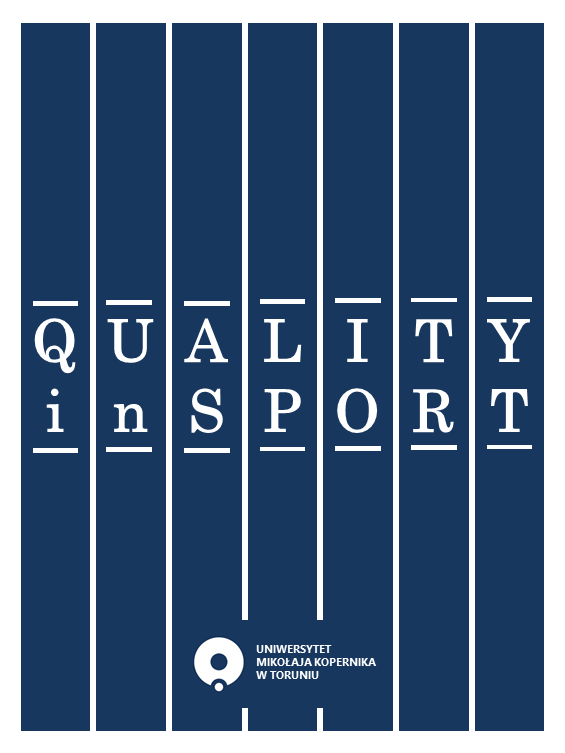Epigenetic Shifts in Preterm Neonatal Microbiome
DOI:
https://doi.org/10.12775/QS.2025.41.60029Keywords
Gut microbiome, Preterm infants, Neonatal intensive care, Probiotics, Microbial metabolites, Intrauterine inflammation, BreastfeedingAbstract
Introduction and Study Aim: Preterm birth (<37 weeks) causes ~15 million births yearly and is a major contributor to neonatal morbidity and mortality [1]. These infants face developmental challenges, including disrupted microbial colonization and immature regulatory systems. Epigenetic modifications—heritable changes in gene expression without DNA sequence alteration—mediate environmental influences during this critical period [2]. This paper explores how the preterm microbiome and epigenetic mechanisms interact and influence health outcomes.
Brief Description of Current Knowledge: The preterm gut microbiome shows reduced diversity and more hospital-acquired bacteria [3]. Cesarean delivery, antibiotics, and lack of maternal microbes contribute to this dysbiosis. Beneficial colonizers (e.g., bifidobacteria) are reduced, while pathogens (e.g., Staphylococcus, Enterobacteriaceae) increase, linked to NEC and sepsis. Epigenetic shifts also occur rapidly in response to inflammation and stress [3]. Microbial metabolites (e.g., butyrate, folate) can alter epigenetic programming [5], and prenatal epigenetic states may shape microbial colonization [2].
Summary/Conclusions: Microbiome-epigenome interactions may shape immunity and development beyond infancy. Disruptions may imprint harmful epigenetic changes. More research is needed to clarify mechanisms and guide interventions like probiotics or epigenetic therapies.
References
1. World Health Organization. 15 million babies born too soon [Internet]. Geneva: World Health Organization; 2012 May 2 [cited 2023 Oct 12]. Available from: https://www.who.int/news/item/02-05-2012-15-million-babies-born-too-soon.
2. Indrio F, Martini S, Francavilla R, Corvaglia L, Cristofori F, Mastrolia SA, et al. Epigenetic matters: the link between early nutrition, microbiome, and long-term health development. Front Pediatr. 2017;5:178. doi:10.3389/fped.2017.00178.
3. Lu L, Claud EC. Intrauterine inflammation, epigenetics, and microbiome influences on preterm infant health. Curr Pathobiol Rep. 2018;6(1):15–21. doi:10.1007/s40139-018-0159-9.
4. Cortese R, Lu L, Yu Y, Ruden DM, Claud EC. Epigenome–microbiome crosstalk: a potential new paradigm influencing neonatal susceptibility to disease. Epigenetics. 2016;11(3):205–15. doi:10.1080/15592294.2016.1155011.
5. Underwood MA. Development of the preterm infant gut microbiome: a research priority. Microbiome. 2014;2:38. doi:10.1186/2049-2618-2-38
6. Thänert R, Schwartz DJ, Keen EC, Hall-Moore C, Wang B, Shaikh N, et al. Clinical sequelae of gut microbiome development and disruption in hospitalized preterm infants. Cell Host Microbe. 2024;32(10):1822-1837.e5. doi:10.1016/j.chom.2024.07.027.
7. Choi YS, Song IG. Fetal and preterm infant microbiomes: a new perspective of necrotizing enterocolitis. Clin Exp Pediatr. 2017;60(10):307–11. doi:10.3345/kjp.2017.60.10.307
8. Gao F, Zhang J, Jiang P, Gong D, Wang J, Xia Y, Østergaard MV, et al. Marked methylation changes in intestinal genes during the perinatal period of preterm neonates. BMC Genomics. 2014;15:716. doi:10.1186/1471-2164-15-716.
9. Everson TM, O’Shea TM, Burt A, Hermetz K, Carter BS, Helderman J, et al. Serious neonatal morbidities are associated with differences in DNA methylation among very preterm infants. Clin Epigenetics. 2020;12(1):151. doi:10.1186/s13148-020-00939-7.
10. Stilling RM, Dinan TG, Cryan JF. Microbial genes, brain & behaviour – epigenetic regulation of the gut–brain axis. Genes Brain Behav. 2014;13(1):69–86. doi:10.1111/gbb.12109
11. Sparrow S, Manning JR, Cartier J, Anblagan D, Bastin ME, Piyasena C, et al. Epigenomic profiling of preterm infants reveals DNA methylation differences at sites associated with neural function. Transl Psychiatry. 2016;6(1):e716. doi:10.1038/tp.2015.210
12. Arrieta MC, Stiemsma LT, Amenyogbe N, Brown EM, Finlay B. The intestinal microbiome in early life: health and disease. Front Immunol. 2014;5:427. doi:10.3389/fimmu.2014.00427
13. Mirpuri J, Raetz M, Sturge CR, Wilhelm CL, Benson A, Savani RC, et al. Proteobacteria-specific IgA regulates maturation of the intestinal microbiota. Gut Microbes. 2014;5(1):28–39. doi:10.4161/gmic.26489
14. Al Nabhani Z, Dulauroy S, Marques R, Cousu C, Al Bounny S, Déjardin F, et al. A weaning reaction to microbiota is required for resistance to immunopathologies in the adult. Immunity. 2019;50(5):1276–88.e5. doi:10.1016/j.immuni.2019.02.014.
15. Dahlgren AF, Pan A, Lam V, Gouthro KC, Simpson PM, Salzman NH, et al. Longitudinal changes in the gut microbiome of infants on total parenteral nutrition. Pediatr Res. 2019;86(1):107–14. doi:10.1038/s41390-019-0391-y
16. Gomez de Agüero M, Ganal-Vonarburg SC, Fuhrer T, Rupp S, Uchimura Y, Li H, et al. The maternal microbiota drives early postnatal innate immune development. Science. 2016;351(6279):1296–302. doi:10.1126/science.aad2571.
17. Wopereis H, Oozeer R, Knipping K, Belzer C, Knol J. The first thousand days – intestinal microbiology of early life: establishing a symbiosis. Pediatr Allergy Immunol. 2014;25(5):428–38. doi:10.1111/pai.12232
18. Rodriguez J, Jordan S, Mutic A, Thul T. The neonatal microbiome: implications for neonatal intensive care unit nurses. MCN Am J Matern Child Nurs. 2017;42(6):332–7. doi:10.1097/NMC.0000000000000375
19. Kennedy KM, Gerlach MJ, Adam T, Heimesaat MM, Rossi L, Surette MG, et al. Fetal meconium does not have a detectable microbiota before birth. Nat Microbiol. 2021;6(7):865–73. doi:10.1038/s41564-021-00904-0
20. Dominguez-Bello MG, Godoy-Vitorino F, Knight R, Blaser MJ. Role of the microbiome in human development. Gut. 2019;68(6):1108–14. doi:10.1136/gutjnl-2018-317503
21. Lynch SV, Vercelli D. Microbiota, epigenetics, and trained immunity: convergent drivers and mediators of the asthma trajectory from pregnancy to childhood. Am J Respir Crit Care Med. 2021;203(7):802-8. doi: 10.1164/rccm.202010-3779PP
22. Wheater EN, Galdi P, McCartney DL, Blesa M, Sullivan G, Stoye DQ, et al. DNA methylation in relation to gestational age and brain dysmaturation in preterm infants. Brain Commun. 2022;4(2):fcac056. doi:10.1093/braincomms/fcac056.
Downloads
Published
How to Cite
Issue
Section
License
Copyright (c) 2025 Agnieszka Buliszak, Piotr Marcjasz, Anna Bioły, Monika Babczyńska, Agnieszka Borończyk, Piotr Zając

This work is licensed under a Creative Commons Attribution-NonCommercial-ShareAlike 4.0 International License.
Stats
Number of views and downloads: 480
Number of citations: 0



